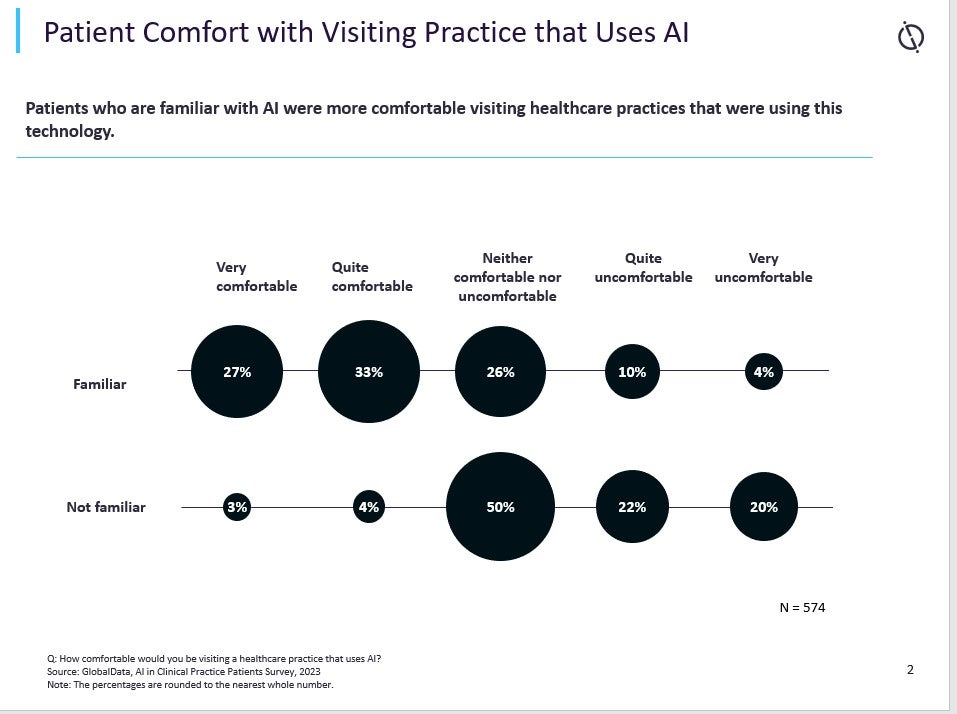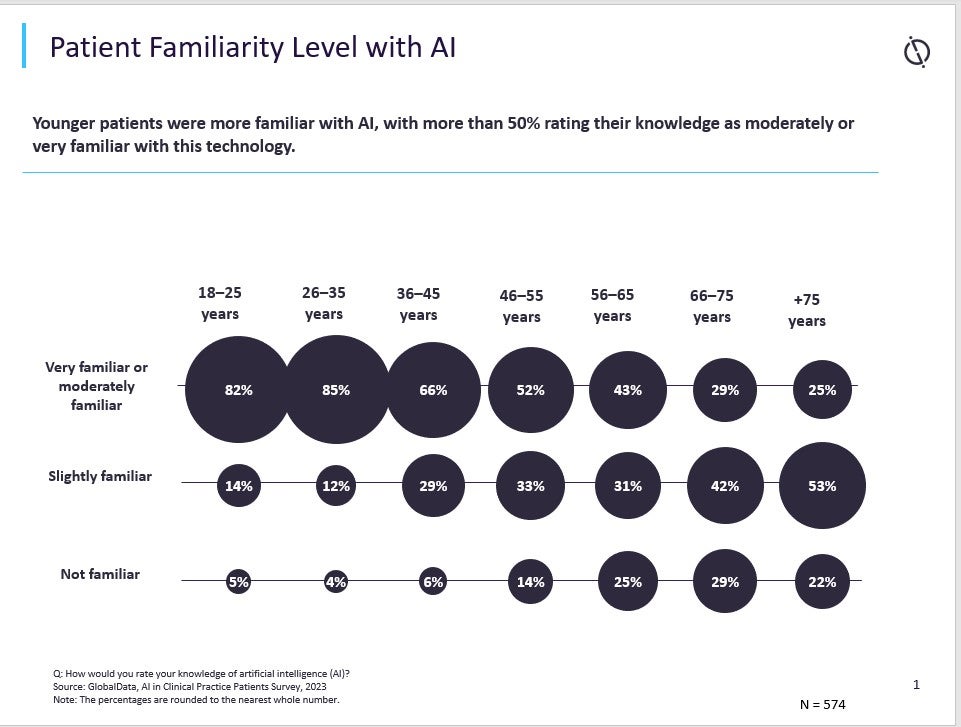As the healthcare landscape undergoes transformation due to factors like aging populations, rising chronic diseases, and shifts in lifestyle choices, technology, particularly artificial intelligence (AI), is playing an increasingly vital role.
For example, AI-powered chatbots or virtual assistants are used to provide basic medical information and answer common patient queries to reduce the burden on healthcare professionals, and to streamline the triage process; generative AI is used to enhance the analysis of medical imaging to improve disease detection, and the like.
A recent GlobalData survey highlights how patients’ familiarity with AI significantly influences their comfort level when considering healthcare facilities utilizing this technology. During July–August 2023, 574 patients were surveyed from Brazil, Canada, France, Germany, India, Italy, Japan, Mexico, Spain, the UK and the US. Out of surveyed patients who were familiar with AI, 60% were either very or quite comfortable with using a healthcare facility that uses AI, while of the patients who were not familiar with AI, only 7% were. (Figure 1).

The survey data also reveals that younger surveyed patients (18–55 years old) were more likely to be familiar with AI than older (56+ years) patients, with more than 50% of them rating their knowledge as moderately or very familiar.
More than 80% of the respondents aged 35 or younger were very confident that their familiarity with technology was very or moderately high, while less then 30% of the patients aged 66 or older confirmed the same (Figure 2).

Younger generations tend to be introduced to technology earlier in their life and as a result have more knowledge of as well as confidence in technologies like AI. Naturally, familiarity with AI creates more understanding of the benefits that technology can bring.

US Tariffs are shifting - will you react or anticipate?
Don’t let policy changes catch you off guard. Stay proactive with real-time data and expert analysis.
By GlobalDataHowever; it can also create more concerns related to reliability, data privacy, or algorithm biases. To increase patients’ trust in AI use in the healthcare setting, it is necessary to increase their knowledge in technology so they would have a better understanding on how AI is being used, what benefits this technology can provide, and what can be the risk associated with the use of AI.
Because of the higher familiarity level with AI, when current younger generations start needing more care, they may be also more willing to accept technologies’ use in healthcare. This may be an encouraging finding as due to increasing life expectancy and prevalence of chronic disease, the future generations may need more medical care; technologies can help to address these healthcare needs and fill the gaps when resources become limited.
While AI adoption is inevitable, it also has to be inclusive. Even though younger generations may drive the use and adoption of AI, building a fair and ethical AI system will need intergenerational collaboration. AI use will need to address generation-wide issues, and therefore it is essential to ensure that all generations can benefit from the adoption of AI.





